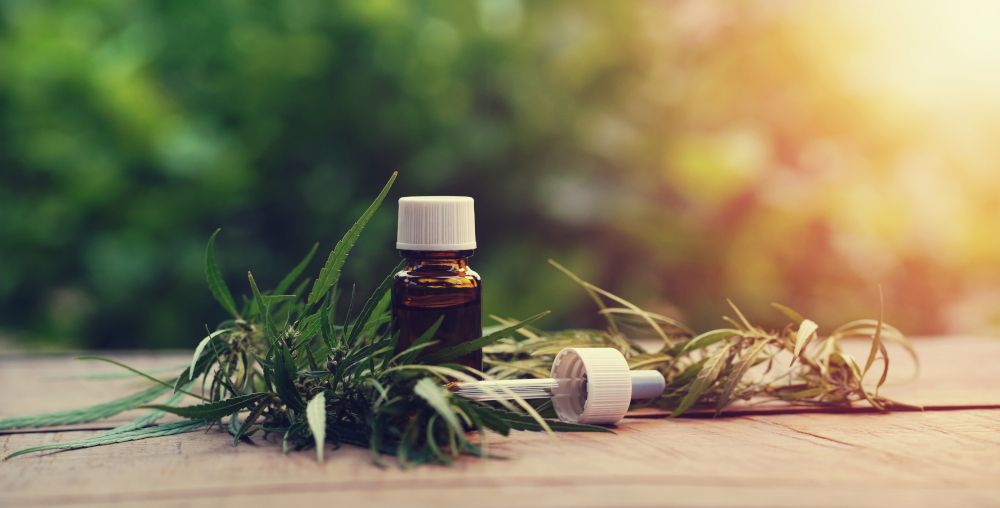Colorado lawmakers say they have worked out a compromise in proposed legislation stakeholders had feared would place overly strict limits on CBD.
The measure, Senate Bill 271 (SB 271), is aimed primarily at reigning in highly-concentrated delta-8 THC products, which are synthetically produced from hemp-derived CBD in the lab. The products, which produce a “high” that mimics that of marijuana-derived delta-9 THC, have flourished in Colorado and other states amid safety concerns due to regulatory gaps.
While SB 271 would put up guardrails for delta-8 by placing the compound under rules for delta-9 (marijuana) products, stakeholders complained that limits in a proposed amendment to the bill would have deprived consumers of access to over-the-counter CBD products, which are legal and can be sold outside of the state’s marijuana dispensaries.
The compromise
A fundamental provision in the bill defines hemp- and marijuana-derived compounds in three categories: Non-intoxicating cannabinoids; potentially intoxicating compounds; and intoxicating cannabinoids. Non-intoxicating cannabinoid products such as CBD derived from hemp may be produced, distributed, or sold in Colorado.
Under original language in SB 271, any hemp product with more than 2.5 milligrams of THC per serving, and with a ratio of CBD to THC less than 15:1 would be regulated, levels that stakeholders said would be safe.
An amendment to SB 271 that preceded an April Senate hearing proposed to reduce the maximum THC-per-serving level to 1.75 milligrams per serving while maintaining the CBD-to-THC ratio, but restricting such products to no more than five servings per container. Those parameters would have made many CBD products off-limits, critics of the amendment said.
Bipartisan sponsors of SB 271 say they’ve now struck a compromise that accepts the 1.75 milligrams limit and resets the maximum CBD-to-THC ratio at 20:1 while removing entirely the limit on servings per package.
The compromise came after two Senate committees gave their approval to SB 271 following recent hearings. The Finance Committee approved the measure on a 5-2 vote in mid-April, while the Appropriations Committee passed the bill with amendments 9-1 following a hearing last week, placing it before the full Senate. Further amendments are expected before a final vote in the Senate, and before the bill heads to the Colorado House of Representatives.
State crop plummeted
Colorado emerged as a leading industrial hemp state beginning in 2014, when the federal government began allowing pilot programs to be set up. But by placing their bets almost entirely on CBD production, the many companies that quickly emerged saw their fortunes plummet amid a worldwide crash in the sector that took hold in 2019.
The crash in the CBD sector gave rise to delta-8 THC as suppliers of hemp flowers required for production began selling their harvests to those making the psychoactive hemp products. Delta-8 eventually drew the attention of lawmakers, and ultimately sparked SB 271 after authorities became concerned about youth purchasing the psychoactive products, which have been sold in a wide range of retail outlets.
The Denver-based Marijuana Industry Group, which represents the legal pot market, has pushed state authorities to crack down on the delta-8 niche, which it said is selling hundreds of millions of dollars in unregulated products which go under-taxed, are available without ID checks and purchase limits, and are under no safety restrictions.
Specific provisions
The Colorado Department of Health and Environment, the Marijuana Enforcement Division and Department of Revenue issued a joint policy statement in 2021 clarifying that synthetically produced cannabinoids from industrial hemp, such as delta-8 THC, are not allowed.
SB 271 has its roots in that policy and in 2022 legislation which established a task force to look at intoxicating hemp products and make legislative and rule recommendations. Aside from THC considerations and under specific provisions in the measure as it now stands:
- Producers must be licensed to manufacture potentially intoxicating compounds or intoxicating cannabinoids from industrial hemp.
- Businesses selling intoxicating hemp products would be subject to the same licensing and testing requirements as marijuana dispensaries, with taxation on the products the same as that applied to marijuana products.
- Manufacturing, selling, or delivering products that contain intoxicating cannabinoids in excess of limits are prohibited, as are products containing hemp that are not cosmetics, dietary supplements, foods, or food additives.
- The maximum penalty for any rules violation is $10,000.
Hemp harvested in Colorado last year was down to 480 acres compared to 3,100 harvested in 2021, according to figures from the U.S. Department of Agriculture (USDA). While harvested figures were not recorded prior to 2021, Colorado had nearly 90,000 acres registered for hemp farming in its peak year of 2019, although crops were estimated to have been brought in from only about half of those fields.

